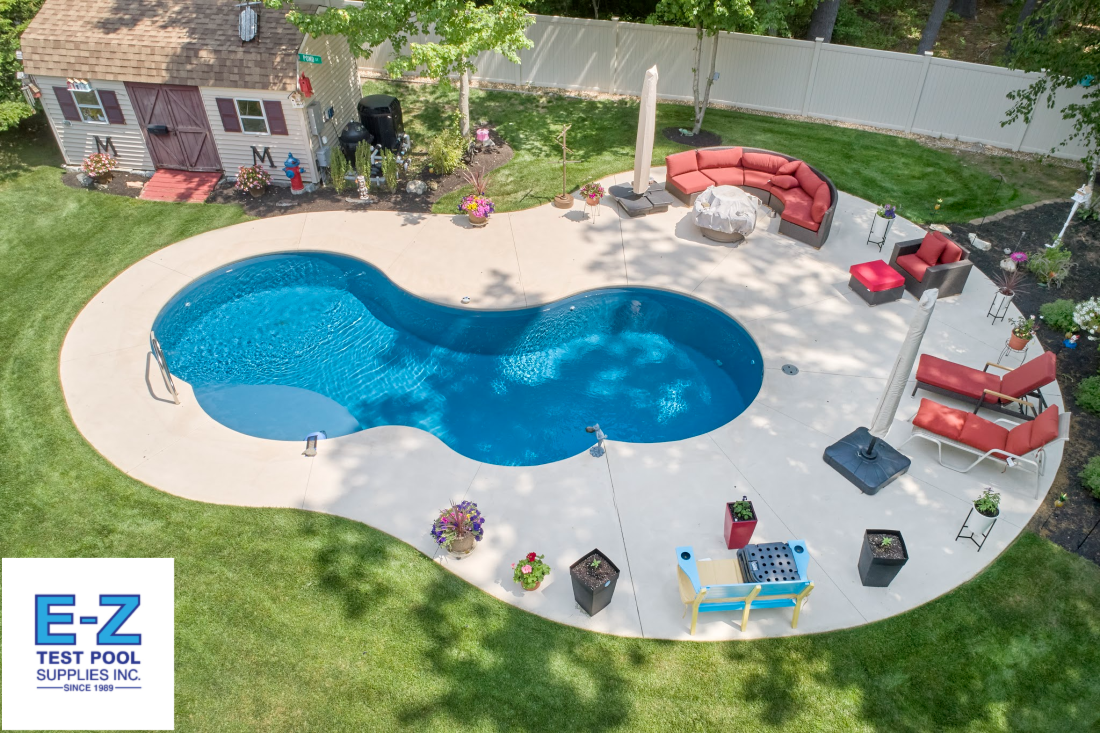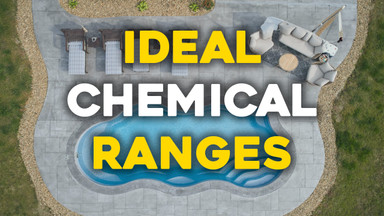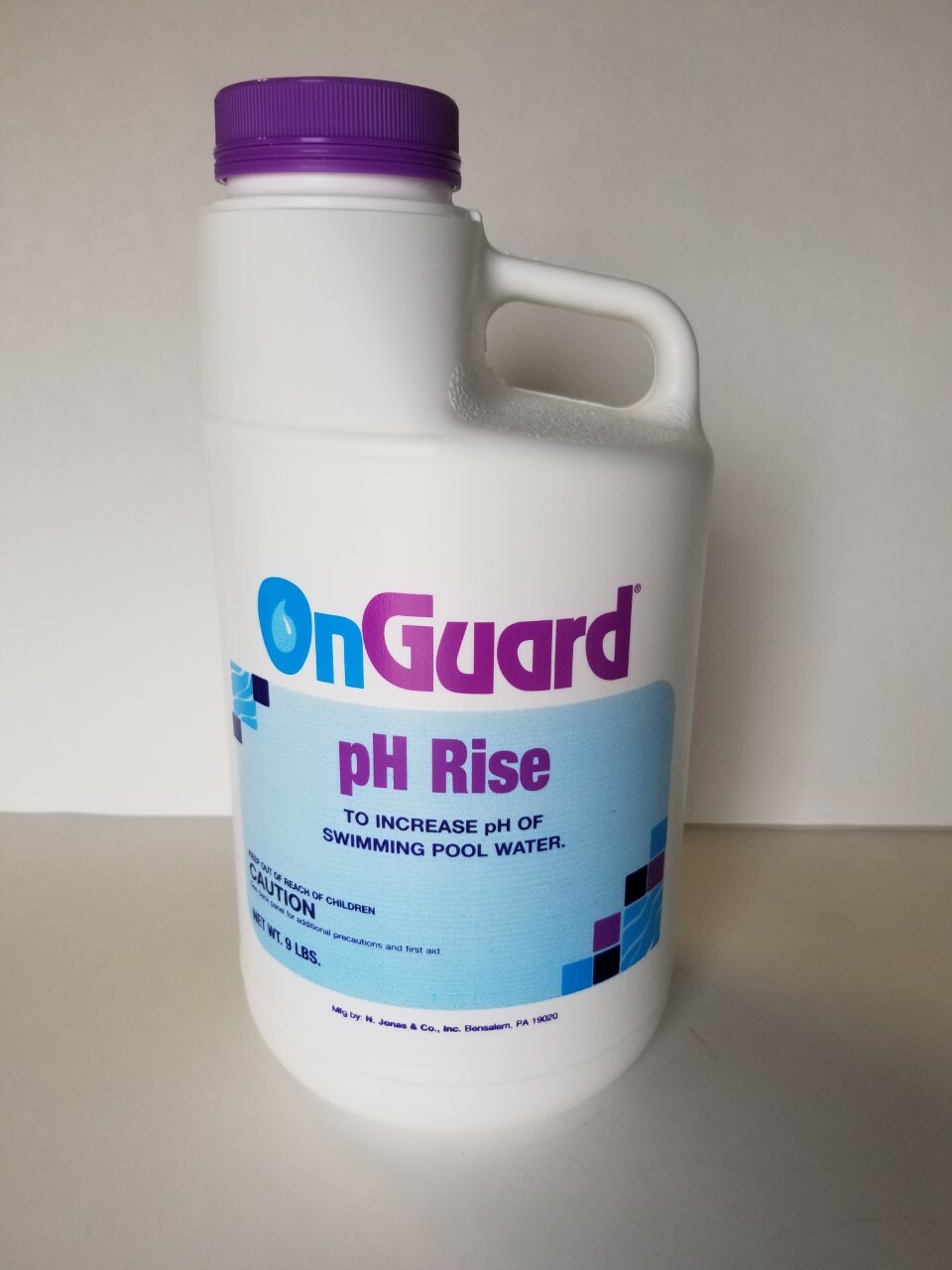Published by EZ Pool & Spa Supply on 05/17/2017
Ideal Chemical Ranges for Your Swimming Pool

Ideal Chemical Ranges for Your Swimming Pool
People often ask me, “What’s the big deal with testing and balancing pool water? Does it really matter?” I think sometimes people expect me to look around to see that there’s no one within earshot, and slyly whisper, “Nah, it doesn’t matter. None of these chemicals really do anything important. But don’t tell anyone.” Well…nothing could be further from the truth! In this blog we’ll discuss the importance of testing and adjusting these chemical levels and show how to balance within our recommended ideal chemical range.
Before we delve into the reasons for why these chemical levels are important let’s take a brief look at the recommended ranges for some of the most important values. The following table shows EZ Pool & Spa Supplies' professional recommendations for chemical ranges:
| DESIRED RANGE FOR VINYL LINER POOL | DESIRED RANGE FOR GUNITE POOL | |
| FREE CHLORINE | 1-3 ppm | 1-3 ppm |
| pH | ||
| TOTAL ALKALINITY | 100 – 150 ppm | 80 – 120 ppm |
| CALCIUM HARDNESS | 100 – 200 ppm | 200 – 300 ppm |
| STABILIZER/CYANURIC ACID | 30 – 100 ppm | 30 – 100 ppm |
| IRON | 0 – 0.2 ppm | 0 – 0.2 ppm |
| COPPER | 0 – 0.2 ppm | 0 – 0.2 ppm |
As you can see, we recommend that vinyl liner and gunite pools be treated the same, with the exception of total alkalinity and calcium levels. Without getting deeply technical in this blog, let’s just say that vinyl and gunite pools have different needs when it comes to these specific values.
Now let’s explore WHY you want to test for and maintain these values. There are 3 main reasons for maintaining your pool chemicals in range. Although some chemicals will serve more than one of these reasons, they are the following:
- Health and Safety – Cleanliness and Clarity
- Swimmer Comfort
- Protection and Maintenance of Pool Equipment
Ideal Chemical Ranges for Your Swimming Pool
HOW TO MAINTAIN CRYSTAL CLEAR POOL WATER
Free chlorine level (the measure of chlorine immediately available) is most easily understood by pool owners. Without enough free chlorine in the pool, things such as bacteria, algae, and even viruses (such as E. coli) will develop and can either make you sick or make your pool an unpleasant mess to swim in. Keep this level too high and you may experience itchy skin, red eyes, not to mention long term wear and tear on things such as the pool liner, pump, filter and other components made of plastic and metal.
The next in order of importance is pH, and its close relative Total Alkalinity. Correct pH serves many purposes. Most chemicals, including chlorine, perform best in the desired 7.2 – 7.6 range. For this reason, healthy pH levels have a direct bearing upon your pool’s cleanliness and clarity. Also, the further out of whack your pH is the more likely you’ll suffer irritated eyes and skin. Although some adults won’t feel the effects of this, children are particularly sensitive and may develop rashes in their swimsuit area if the pH is off far enough. The easiest way to think of total alkalinity (often just termed alkalinity) is that it works to lock in and maintain pH, preventing it from traveling or “bouncing” as other chemicals are added.
The next chemical level in the table, calcium hardness, does more to protect the equipment and components than any other benefit. Unfortunately because it is not as well understood, it is often neglected or under-attended causing long-term issues. Water has a natural tendency to try to dissolve things into itself. This can be demonstrated by taking a pitcher of water and adding a cup of sugar. You’ll notice that after some time has gone by the sugar is no longer settled on the bottom – it has dissolved INTO the water. Your pool water is no different in that it will try to dissolve things into itself – such as the calcium in your gunite pool’s plaster or substances in vinyl and plastics. Adding the proper amount of calcium to the water satisfies the water’s urge to dissolve and thereby prevents it from leaching critical substances from your components. If calcium levels are too high, the water loses some of its ability to hold it in solution and hard whitish deposits called scale begin to accumulate on surfaces.
Chlorine stabilizer, also known by its chemical name as cyanuric acid has an indirect relationship to your pool’s cleanliness and sanitation. Free chlorine is needed to sanitize your pool, however it is easily broken down and lost due to sunlight. For this reason chlorine stabilizer is used (only on outdoor pools), and acts as a sunscreen for the chlorine preventing it from being burned up prematurely.
And lastly are metals, most commonly copper and iron. For the most part these are chemicals that it is best to eliminate or keep at a minimum. Presence of these metals and others as well in high quantities contributes to staining of pool surfaces, or water discoloration when shocking the pool. A pool high in iron may turn yellow/brown, whereas a pool high in copper may turn blue/green when shocked.
ALL of these values are important to the overall health of you, your water, and your equipment! Remember that properly balanced water, with good filtration (12hrs. per day is recommended) will make for crystal clear healthy water.
Shop Balancing Chemicals







